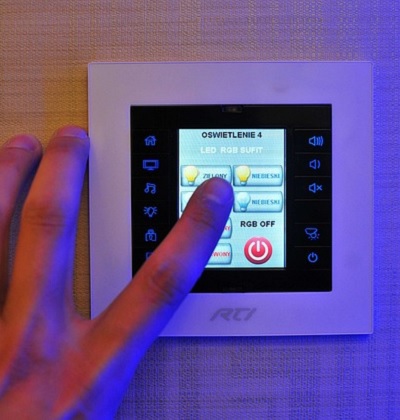What makes an HMI intuitive?
Article#: 00110
Date: 2025-06-25
Author: Radim

An intuitive human machine interface (HMI) enables users to interact with machines and processes naturally and efficiently, even if they have received little or no training.
This applies to all forms of human machine interface, from simple buttons and LED lights to complex graphical user interfaces on a screen or touch panel.
1. Familiarity:
Use of standardized industry icons, color coding and layouts that align with user expectations.
Related elements are visually and spatially grouped.
The design suggests how to interact with controls.
2. Consistency:
Behaviors, terminology, and visual patterns are uniform across all screens and components - physical or digital.
3. Clarity:
Texts and symbols are easy to understand, clear and originate from the user's language or symbolic domain.
Visual hierarchy, spacing and contrast guide the eye naturally to the most important information.
The current status of machines, processes and alarms is always clearly indicated.
4. Feedback:
Systems show confirmation of user input.
Feedback is provided promptly, clearly and in a form that corresponds to the context of the input.
5. Simplicity:
Only the necessary controls and information are shown for the current context.
Advanced or detailed data is available, but not in a set with primarily the most important information - users can view advanced information if needed.
6. Error prevention and recovery:
The interfaces are designed to prevent accidental misoperation.
(For example, performing an irreversible action requires additional confirmation.)
Error messages clearly state what happened and guide the user toward resolution.
7. Role-specific screens and views:
Different users (operators, maintenance, supervisors) have different tasks and information needs.
A good HMI supports each role with the right level of detail and control.
8. Abstract model of reality:
An HMI is not the machine - it's an abstraction of the machine or process.
The interface should align with how users mentally model the system: the layout, flow, symbols, and cause-effect logic should reflect the physical or functional reality the user expects.
The closer the HMI matches the real-world process (or the operator's mental model of it), the more intuitive and trustworthy it becomes.
© Radim-Automation, 2020–2025. All rights reserved.
Sharing of this article is permitted with proper attribution (link to the original page).
Related previous articles:
- HMI - colors in the visualization
- HMI - annoying pop-up windows
- HMI – Don’t hide anything
- HMI - back and forward navigation buttons
- HMI navigation
- HMI layout design
- HMI layout and correct display size
- Choosing an HMI display
- HMI is not a web page
- HMI - Don't overdo it with complex design
- HMI - Have a consistent style
- High Performance HMI
- Graphic designer
- Talk to operators
- Clear signals
- Design considerations for effective HMIS
- Abbreviations
- Modular software architecture
- Are there also any disadvantages?
- Design machines with a focus on user's abilities and needs
- Project leader
- Why do automation projects fail?
- Collect all the requirements and sort them!
- Who will operate?
- Functional and intuitive HMI
- HMI and PLC applications should grow together
- Don't make it worse!
- Introduce the terminology and standardize it!
- Industrial evolution - Listen to your customers and follow new trends!
- Stay alert!
- Don't disappoint your customer!
- Ask questions!
- Focus on target!
- Don't hide any problem!
- Check the result!
- Keep it simple!
- Success is not a matter of coincidence
- Development is evolution
- Transparency and reliability
- From an idea to a consistent system
Comment#: 00001
Date: 2025-06-28
User:
Кулинарный гид в одном месте! От супов до десертов — здесь есть всё с четкими инструкциями. Особенно популярен раздел с рецептами от шеф-поваров. Ресурс уже стал фаворитом у многих семей.
<a href=https://maminisuhariki.xyz/jalovichina-tushkovana-z-poreem-u-multivarci.html>maminisuhariki.xyz</a>